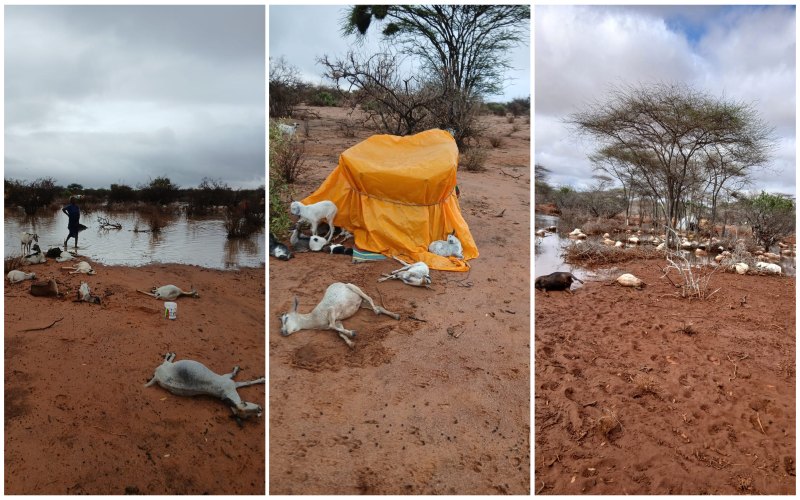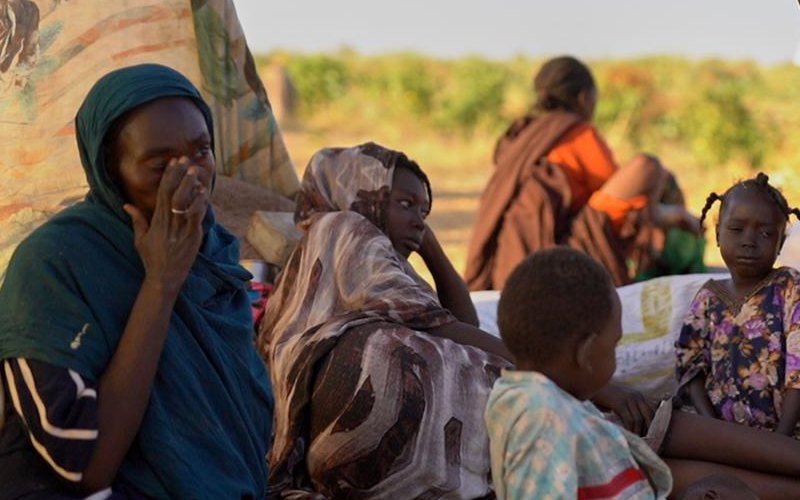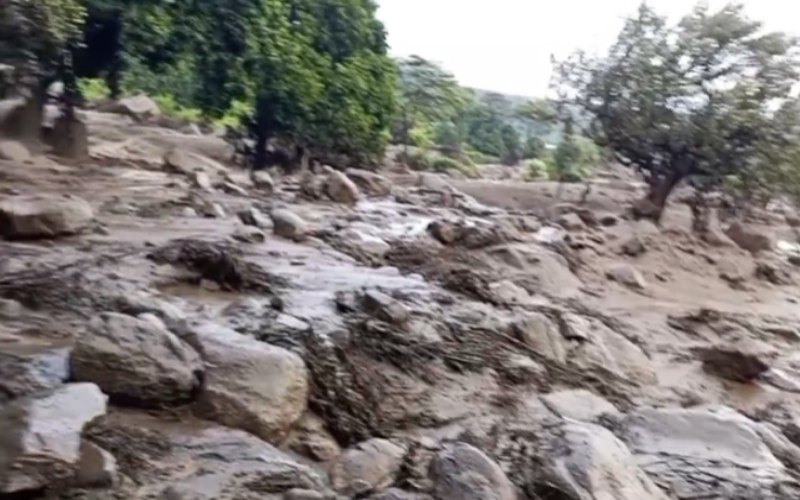Rain turns deadly in Garissa, killing over 500 livestock

As dusk settled over Shimbirey and Saka, the smell of wet soil filled the air. The same rain that took their herd away continued to fall gently, each drop a reminder of how quickly fortune can shift in the arid lands of Garissa.
A deafening crack tore through the evening sky over Shimbirey and Saka in Balambala Sub-County, Garissa County.
Moments later, the downpour that promised new life turned into a nightmare for three herding families who lost over 500 goats and a collapsible Somali hut was swept away by floods.
More To Read
- 10 dead after massive landslide in Elgeyo Marakwet County following heavy rains
- Mpox detected in Garissa, patient isolated as officials trace contacts
- Five-day forecast predicts intense rainfall across the country
- Traders count heavy losses as inferno ravages Garissa’s Hagadera refugee camp market
- Heavy rains, gusty winds expected across Kenya
- KWS rescues cheetah cub raised by woman in Garissa
Halima Aden, a widowed mother of eight, stood motionless at Gutoy grazing land, staring at the lifeless bodies of 223 goats and sheep, the family's only source of livelihood, struck dead by the heavy downpour.
For months, the goats had endured the unforgiving drought, surviving on dry shrubs and brackish water. With the arrival of rain, Halima and her children dared to dream again. The rain was supposed to be a blessing, but instead, it brought devastation.
"I thought the rain would save us," Halima whispered, her voice breaking as she pointed to the muddy field. "But it took away everything. We have nothing left."
According to neighbours, the storm built up swiftly that evening, with dark clouds rolling in from the horizon. What began as light showers soon turned violent. When the storm subsided, silence filled the air, except for the wails of herders discovering the carnage left behind.
Halima's eldest son, Mohamed, was the first to reach the nearby grazing field. "I found the goats lying still. Some were still warm, and a few that survived were shivering due to the extreme cold," Mohamed recalled, fighting back tears. "We have been through drought, hunger, everything, but I've never seen something like this."
Abdi Suleiman, a former Sankuri Ward Member of the County Assembly who visited the family, said the family's loss is not just personal but symbolic of the fragility of pastoral life in northern Kenya.
"These animals were their bank, their food, their life," Abdi said. "Losing them means starting from zero." He called on well-wishers, the county government, and the national government to help the devastated family.
Just 50km from Gutoy, another herder at Saka in Balambala Sub-County is equally devastated after losing 250 of his goats and sheep in Wednesday night's heavy downpour.
Ahmed Fetin, an 80-year-old herder, is shocked beyond measure. Like many others, he anticipated that the heavy rains would be a blessing for his goats, but weakened by the prolonged dry spell, his stock lacked the resilience to withstand the stress brought on by the heavy rains.
"After the heavy night rain, what I witnessed in the morning was shocking," Ahmed said. "My lively goats that were in a fenced boma were all carcasses; only a few survived. They were shivering and unable to stand until the sunlight brought hope."
At Qabobey in Balambala Sub-County, it's a similar loss for Said Maalim Aden, who lost 50 goats and sheep in a similar fate.
Unlike Halima and Ahmed, he lost the entire collapsible Somali hut to the raging floods brought on by the heavy rains.
According to his neighbours, his distraught wife developed mental unrest due to the incident. "This family needs urgent support in food, shelter, and counselling," said Hassan Aden, a neighbour.
Former Saka Ward Councillor Aden Bute appealed to humanitarian organisations and both levels of government to intervene and support the affected families in Saka Ward.
Garissa County has endured a string of climate shocks, drought, flash floods, and extreme heat, all of which have stretched rural communities to their limits.
The recent rains, while welcomed after months of dryness, have also unleashed unexpected hazards of livestock death and flash floods. Experts say the incidents are becoming more frequent due to erratic weather patterns linked to climate change.
As news of the tragedy spread, neighbours and fellow herders gathered to comfort Halima and her children, bringing water, food, and words of prayer. "Everything belongs to Allah, and to Him it returns," one elder recited as the community gathered under a fading sunset.
Despite the despair, Halima refuses to give up. She says her faith will carry her through. "Maybe Allah has a reason," she said softly. "We will start again, even if we start with one goat."
As dusk settled over Shimbirey and Saka, the smell of wet soil filled the air. The same rain that took their herd away continued to fall gently, each drop a reminder of how quickly fortune can shift in the arid lands of Garissa.
Top Stories Today










































